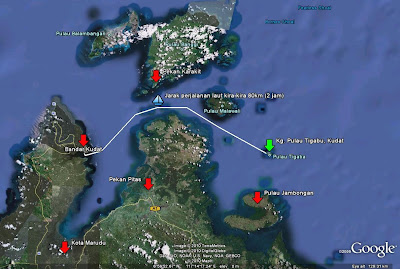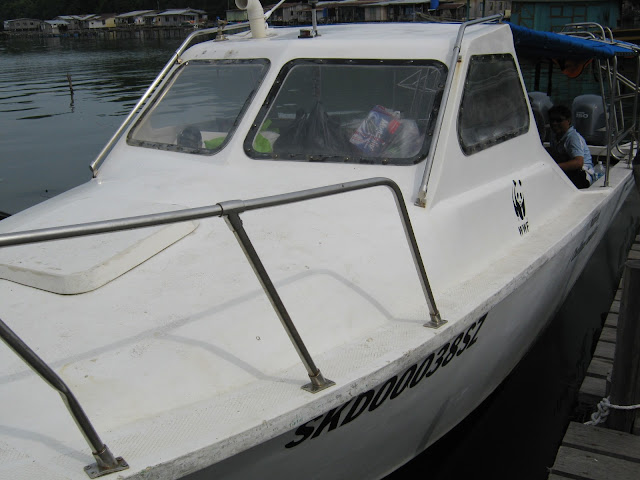Climate Change Adaptation Training
Posted by: Hui Ling
Climate change as much as it is feared, is unfortunately a long term threat that has the potential to affect every part of our planet. Climate change will exacerbate impacts such as droughts, floods, extreme weather events and sea level rise which will not only affect humans but also animals and plants, all of which rely on the natural environment. How can we adapt to climate changes? How is our Kudat-Banggi PCA Team going to manage the probable impact of climate change on the marine ecosystem of the proposed Tun Mustapha Park (TMP)?
The Kudat-Banggi PCA Team and others in WWF-Malaysia attended a week’s training on Climate Change Adaptation, conducted by WWF-US trainers in January 2011. They learned the difference between climate change adaptation and climate change mitigation strategies, and are now familiar with adaptation concepts presented through role-playing and group exercises!

SSME Manager Robecca Jumin and WWF-US Trainer Alfonso Lombana presenting an ecological drawing that documents current climate extremes and their effects on ecosystems, species and humans in TMP
Through case studies and using Open Standards planning tools, the team learned to assess where climate change adaptation strategies can be incorporated into existing conservation strategies for the proposed TMP. This may feed into the collaborative management plan for the park, making it climate resilient as well as sustainable. It is important that all stakeholders consider the impacts of climate change and the need for adaptation capacity.
At the end of the training, 16 participants visited the Kudat-Banggi PCA for a post-workshop field trip. The participants were able to observe firsthand the probable impact of climate change on the marine ecosystem of the proposed TMP.


Participants on field visit to the proposed Tun Mustapha Park saw beach erosion and high sea levels that may be causing coastal trees to die at Tanjung Ismit, Pitas.
© WWF-Malaysia/Robecca Jumin



Comments
Post a Comment